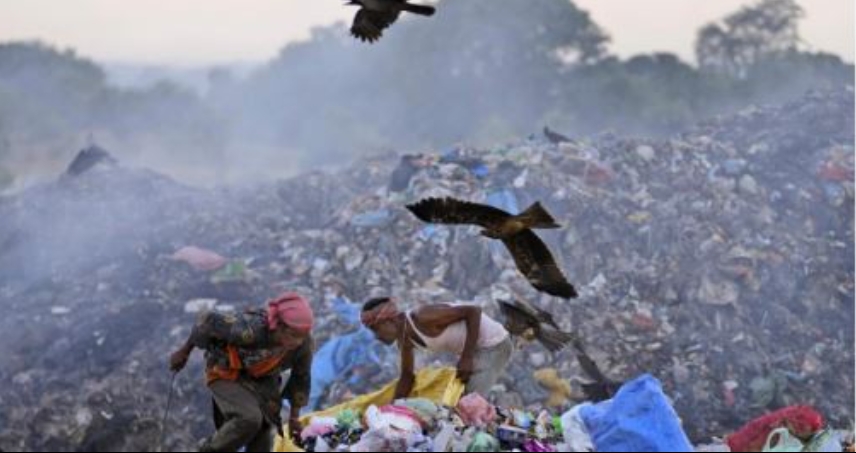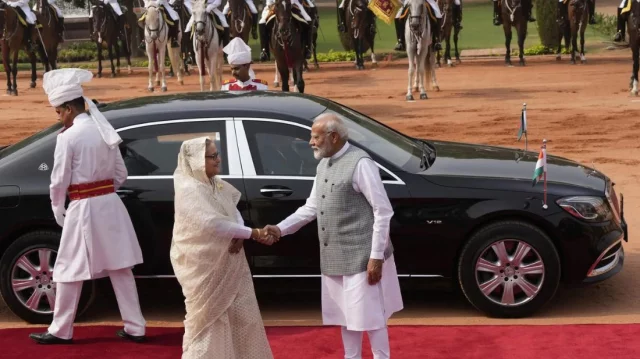
July,1: The putrid smell of burning garbage wafts for miles from the landfill on the outskirts of Jammu in a potentially toxic miasma fed by the plastics, industrial, medical and other waste generated by a city of some 740,000 people. But a handful of waste pickers ignore both the fumes and suffocating heat to sort through the rubbish, seeking anything they can sell to earn at best the equivalent of $4 a day.
"If we don't do this, we don't get any food to eat," said 65-year-old Usmaan Shekh. "We try to take a break for a few minutes when it gets too hot, but mostly we just continue till we can't."
Shekh and his family are among the estimated 1.5 to 4 million people who scratch out a living searching through India's waste — and climate change is making a hazardous job more dangerous than ever. In Jammu, a northern Indian city in the Himalayan foothills, temperatures this summer have regularly topped 43 degrees Celsius (about 110 Fahrenheit).
At least one person who died in northern India's recent heat wave was identified as a garbage picker.
The landfills themselves seethe internally as garbage decomposes, and the rising heat of summer speeds and intensifies the process. That increases emissions of gases such as methane and carbon dioxide that are dangerous to breathe. And almost all landfill fires come in summer, experts say, and can burn for days.
At the Jammu landfill, small fires dotted the massive pile, sending up plumes of smoke as two men hauled a frayed tarp loaded with garbage on the day Associated Press journalists visited. A 6-year-old boy clutched an armful of plastic sandals. As other pickers occasionally sheltered from the heat, birds wheeled overhead, occasionally touched down in their own search for scraps.
India generates at least 62 million tons of waste annually, according to federal government records, and some of its landfills are literal mountains of garbage, like the Ghaziabad landfill outside New Delhi. And while a 2016 law made it mandatory to segregate waste so that hazardous material doesn't make its way to landfills, the law has been poorly enforced, adding to the risk of waste pickers.
"Since they mostly just use their hands, they are already contaminated by touching everything from diapers to diabetes syringes," said Bharati Chaturvedi, founder of the New Delhi-based Chintan Environmental Research and Action Group.
Chaturvedi, who has worked with waste pickers for more than two decades, said extreme heat has added new risks to waste pickers who are already victims of social discrimination and appalling work conditions.
"It's been a terrible, terrible, terrible year," she said. "They already expect to suffer from the heat and that gives them a lot of anxiety, because they don't know if they'll make it, if they'll survive it (the summer)." (AP)












